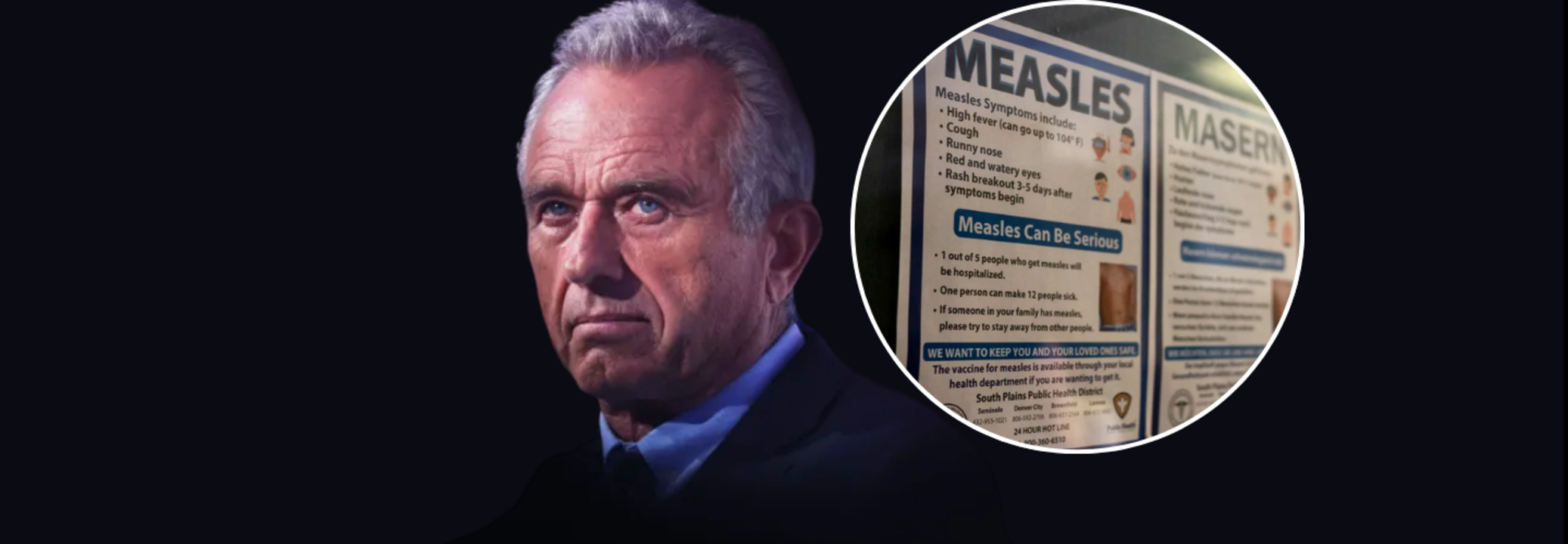RFK Jr. Urges People To Get Measles Vaccination, 'Didn’t Know’ The Impact Of His Research Cuts

SummaryA multi-state measles outbreak nears 600 cases, raising alarm among health experts who warn this could be the beginning of a prolonged public health crisis if not contained swiftly.
Q: Did you personally approve the over $11B in cuts to local and state programs?
— FactPost (@factpostnews) April 9, 2025
RFK Jr.: I'm not familiar with those cuts, they were mainly DEI.
Q: Did you know that $750K of a grant studying adolescent diabetes was cut?
RFK Jr.: I didn't know that pic.twitter.com/z77LyPuMP6
End of Article
